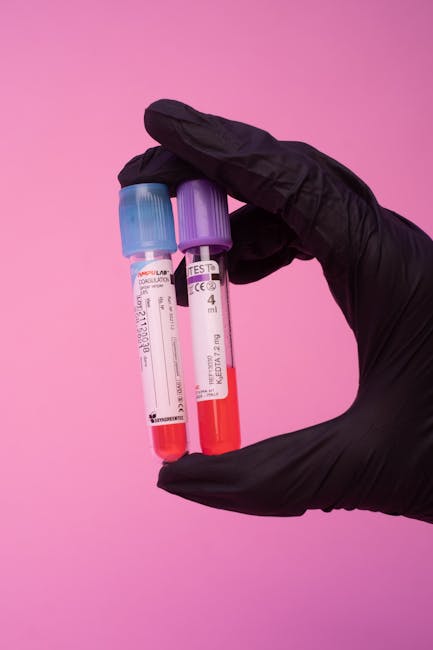Mental health is as crucial as physical health, yet it often remains overlooked. This blog post will shed light on the importance of mental health awareness, how you can participate in Mental Health Awareness Month, and the significance of World Mental Health Day. It will also help you understand the dynamics of mental health and how you can take action for better mental health. So, let’s dive in and learn more about this vital topic.
Key Takeaways
- Understanding the importance of mental health awareness
- Participating in Mental Health Awareness Month and World Mental Health Day
- Understanding the dynamics of mental health
- Taking action for better mental health
Introduction to Mental Health Awareness
Definition of Mental Health
Mental health refers to our emotional, psychological, and social well-being. It affects how we think, feel, and act. It also helps determine how we handle stress, relate to others, and make choices. Mental health is important at every stage of life, from childhood and adolescence through adulthood.
Importance of Mental Health Awareness
Stigma Reduction
Mental health awareness is crucial to reduce the stigma associated with mental health issues. By spreading knowledge and understanding, we can change negative attitudes and behaviors towards people with mental health problems.
Early Identification and Support
Awareness can lead to early identification and support for those suffering from mental health issues. It can help individuals recognize the signs and seek help sooner.
Encouraging Healthy Conversations
Mental health awareness encourages open and healthy conversations about mental health, making it easier for people to express their feelings and seek help when needed.

Mental Health Awareness Month
Overview of Mental Health Awareness Month
Mental Health Awareness Month is observed in May every year in the United States. It aims to raise awareness about mental health, fight stigma, provide support, educate the public, and advocate for policies that support people with mental health issues.
#MoreThanEnough Campaign
Campaign Goals
The #MoreThanEnough campaign aims to highlight that everyone has what it takes to be a mental health advocate. The goal is to empower individuals to take action and spread awareness in their communities.
How to Participate
You can participate by sharing your mental health story, educating others about mental health, or organizing events in your community.
2023 Mental Health Month Toolkit
Resources Provided
The toolkit provides resources such as fact sheets, outreach ideas, and social media graphics to help you spread awareness about mental health.
Usage Guidelines
The resources are free to use. You are encouraged to share them widely, especially during Mental Health Awareness Month.
Outreach Ideas
Community Events
Organizing community events like workshops, seminars, or support groups can help spread mental health awareness.
Educational Workshops
Educational workshops can provide valuable information about mental health and the resources available for support.
Ways to Get Involved
Volunteering
Volunteering for mental health organizations or initiatives can make a significant impact.
Advocacy
Advocacy involves working to influence public policy and resource allocation within political, economic, and social systems and institutions.
Graphics and Shareables
Social Media Utilization
Social media can be a powerful tool for spreading mental health awareness. Use the provided graphics and shareables to reach a wider audience.
Public Awareness Materials
Public awareness materials like posters, brochures, and flyers can be distributed in your community to spread awareness.
Light up Green for Mental Health Month
Symbolism of Green
Green is the color of mental health representing hope, strength, support, and encouragement for people struggling with mental health issues.
Participating Landmarks
Many landmarks across the country light up green in May to show support for mental health awareness.

World Mental Health Day
Significance of 10 October
World Mental Health Day is observed on 10 October every year. It aims to raise global awareness of mental health issues and mobilize efforts in support of mental health.
Global Events
Types of Events
Events include educational talks, workshops, and campaigns to raise awareness about mental health.
How to Organize an Event
Anyone can organize an event. It could be as simple as a discussion in your community or a larger event like a public seminar.
Learning More About Mental Health
Educational Resources
There are many resources available online to learn more about mental health. Websites like the CDC and WHO provide valuable information.
Expert Talks and Webinars
Expert talks and webinars can provide in-depth knowledge about mental health from professionals in the field.

Understanding Mental Health
What is Mental Health?
Mental health includes our emotional, psychological, and social well-being. It affects how we think, feel, and act.
The Dynamics of Mental Health
Fluctuations Over Time
Mental health can fluctuate over time due to various factors like stress, trauma, or life changes.
Impact of Life Events
Significant life events, both positive and negative, can have a profound impact on our mental health.
Prevalence of Mental Illnesses
Global Statistics
According to the World Health Organization, one in four people in the world will be affected by mental or neurological disorders at some point in their lives.
Demographic Variations
Mental illnesses affect people of all ages, races, and income levels. However, certain groups may be more vulnerable due to factors like stress, trauma, or lack of access to care.
Causes of Mental Illness
Biological Factors
Biological factors like genetics, chemical imbalances in the brain, and damage to the central nervous system can cause mental illnesses.
Environmental Factors
Environmental factors such as exposure to violence, poverty, or traumatic events can contribute to the development of mental health problems.
Psychological Factors
Psychological factors like severe psychological trauma suffered as a child, such as emotional, physical, or sexual abuse can lead to mental illnesses.

Taking Action for Mental Health
Taking a Mental Health Test
Importance of Self-Assessment
Self-assessment can help you understand your mental health better. It can be the first step towards seeking help.
Where to Find Reliable Tests
Reliable mental health tests can be found on reputable mental health websites and organizations.
Seeking Professional Help
When to Seek Help
If you’re feeling overwhelmed by your emotions, or if your feelings are interfering with your daily activities, it’s time to seek professional help. You can start by visiting our page on seeking professional help for mental health.
Finding the Right Provider
Finding the right mental health provider is crucial. It’s important to find someone you feel comfortable with and who has experience treating issues similar to yours.
Supporting Others
Recognizing Signs in Loved Ones
If you notice changes in a loved one’s behavior, mood, or social interactions, it could be a sign of a mental health issue.
Offering Support Without Judgment
Offering support involves listening without judgment, providing reassurance, and encouraging them to seek professional help.
Advocacy and Policy Change
Advocating for Better Mental Health Services
Advocacy involves working to improve mental health services and policies. You can join advocacy groups or campaigns to make a difference.
Engaging with Policymakers
Engaging with policymakers involves communicating with elected officials about the importance of mental health and the need for better services and policies.
Remember, mental health matters. Let’s work together to spread awareness and create a world where everyone feels comfortable seeking help. Let’s make mental health a priority. #MentalHealthAwareness #MentalHealthMatters #HealthAwareness #MentalHealth #MentalHealthAdvocate
Mental Health Awareness FAQ
What is mental health?
Mental health refers to our cognitive, behavioral, and emotional well-being. It is all about how we think, feel, and behave. Good mental health isn’t just the absence of mental health problems; it’s also the presence of positive characteristics, such as the ability to manage stress, maintain fulfilling relationships, and recover from setbacks.
Why is mental health awareness important?
Mental health awareness is crucial because it helps break down the stigma associated with mental health issues. By increasing understanding and empathy, we can encourage individuals to seek help, improve the support available, and contribute to the overall well-being of the community. Awareness also fosters a more informed public that can push for better mental health policies and services.
What are common mental health disorders?
Common mental health disorders include depression, anxiety disorders, bipolar disorder, schizophrenia, and eating disorders. Each of these can have a significant impact on a person’s quality of life and ability to function in daily activities. It’s important to recognize that mental health disorders are treatable, and many people can recover completely or learn to manage their conditions effectively.
How can I tell if someone is struggling with their mental health?
Signs that someone might be struggling with their mental health include noticeable changes in mood, behavior, or personality. They might withdraw from friends and activities, have changes in sleeping or eating patterns, or express feelings of hopelessness. It’s important to approach the subject with care and encourage them to talk about their feelings or seek professional help.
How can I improve my mental health?
Improving mental health can involve a variety of strategies, such as staying physically active, maintaining a balanced diet, getting enough sleep, managing stress, and staying connected with others. It’s also beneficial to practice mindfulness or meditation and seek professional help if needed. Remember, self-care is an important aspect of maintaining good mental health.
What should I do if I think I need help with my mental health?
If you believe you need help with your mental health, it’s important to reach out to a healthcare professional, such as a psychologist, psychiatrist, or counselor. They can provide a proper assessment and discuss treatment options with you. Additionally, talking to trusted friends or family members can provide support and understanding.
Can mental health issues be prevented?
While not all mental health issues can be prevented, there are steps one can take to reduce the risk and build resilience. These include developing strong social connections, practicing stress management techniques, maintaining physical health, and seeking help early when experiencing symptoms. Prevention also involves creating supportive environments at home, work, and school.
How does stigma affect people with mental health issues?
Stigma can lead to discrimination, exclusion, and a lack of understanding from others. It can make individuals feel ashamed and reluctant to seek help or talk about their experiences. This can delay treatment and recovery. Combating stigma through education and open conversation is vital for improving the lives of those affected by mental health issues.
What resources are available for mental health support?
Resources for mental health support include mental health professionals, community health centers, helplines, and online resources. Many countries have national helplines and websites dedicated to providing information and support. Additionally, local support groups and therapy can be invaluable resources for individuals seeking help.
Is it possible to fully recover from a mental health disorder?
Recovery from a mental health disorder is possible and can mean different things for different people. For some, recovery involves the complete absence of symptoms. For others, it’s about living a fulfilling life despite ongoing symptoms. Recovery is a personal journey and often involves a combination of treatment, support, and self-care strategies.



